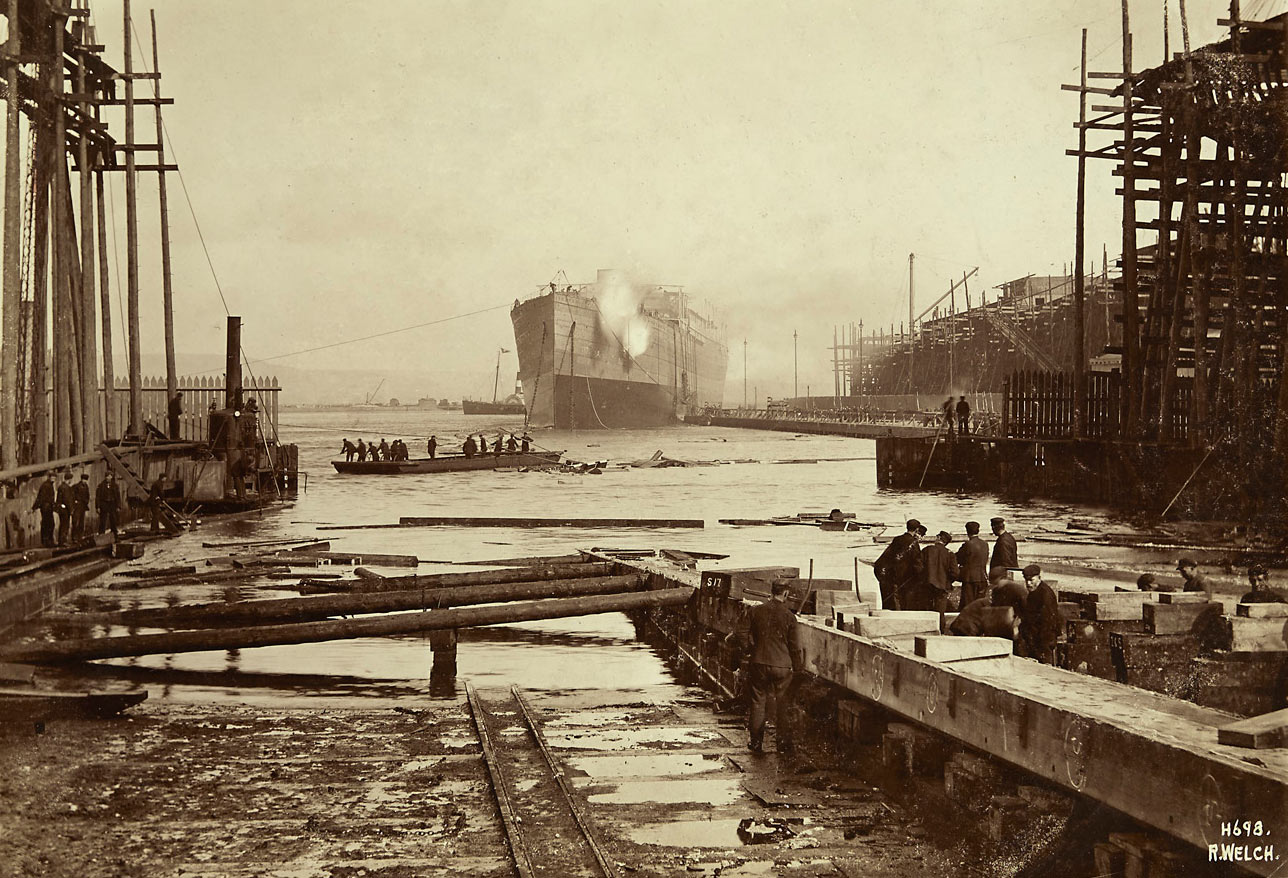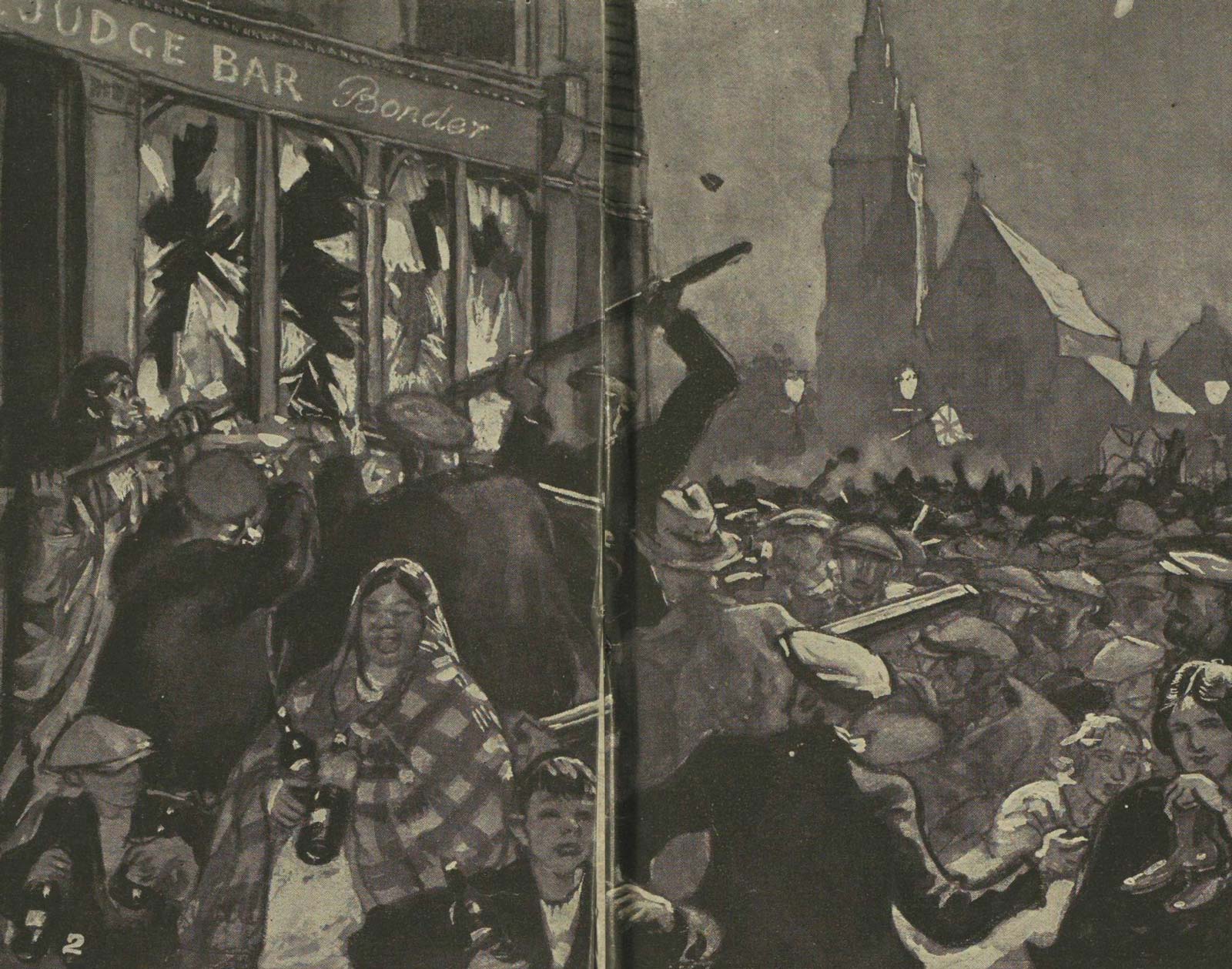Catholic workers forced from Belfast shipyards as violence erupts in the city
Belfast, 27 July 1920 - Sectarian violence has erupted in Belfast with attacks on catholic workers in the city's shipyards and on catholic areas such as Ballymacarrett and the Falls Road.
The disturbances, which began in the Harland and Wolff shipyard, followed informal meetings of workers on the afternoon of 21 July during which resolutions were passed condemning Sinn Féin and its operations in Ireland. The sentiment that was stirred up in these meetings overflowed, resulting in a series of forced expulsions of catholic workers. Trouble ensued when a number of the men told to leave took issue with the instruction: blows were struck and iron bolts were thrown. At least a dozen were injured and taken to Royal Victoria Hospital.
A number of men who were attacked were able to escape by jumping into Musgrave channel and swimming across to the Sydenham shore.

The Harland and Wolff shipyard in Belfast (Image: Public Records Office Northern Ireland)
Throughout the afternoon, search parties, with some carrying union jacks, sought out Sinn Féiners in the shipyard and elsewhere. Houses were looted in the catholic Ballymacarrett district, while the military was drafted into the Falls Road area where they opened fire, killing one man and wounding 11 others.
In the aftermath of these initial disturbances, the unionist Belfast Newsletter did not deny the use of violence against catholics. The newspaper says that it shares the view of Sir Edward Carson that, however terrible the provocation from Sinn Féin, disorder and bloodshed in Ulster, particularly in Belfast, can do nothing but damage the unionist cause.
Despite this call for calm, the violence has continued. While there has been no more incidents in the shipyards, as many catholic workers have chosen to stay away, other firms in Belfast have since been visited and catholics advised to go. The looting has also continued on a large scale in the Falls district, Ballymacarrett, Newtownards Road and elsewhere.
The rioting has extended to other northern towns such as Lisburn where 22 shops were destroyed, and to Bangor where six shops were wrecked and an attempt was made to burn down the Catholic Girls’ Hostel.
Reporting on the unrest in Belfast, the Irish independent asserts that no military or police efforts were made to prevent the looting or the intimidation of catholic workers, claiming that ‘a well-organised vendetta is being waged against the catholic section of the population’.
[Editor's note: This is an article from Century Ireland, a fortnightly online newspaper, written from the perspective of a journalist 100 years ago, based on news reports of the time.]





















